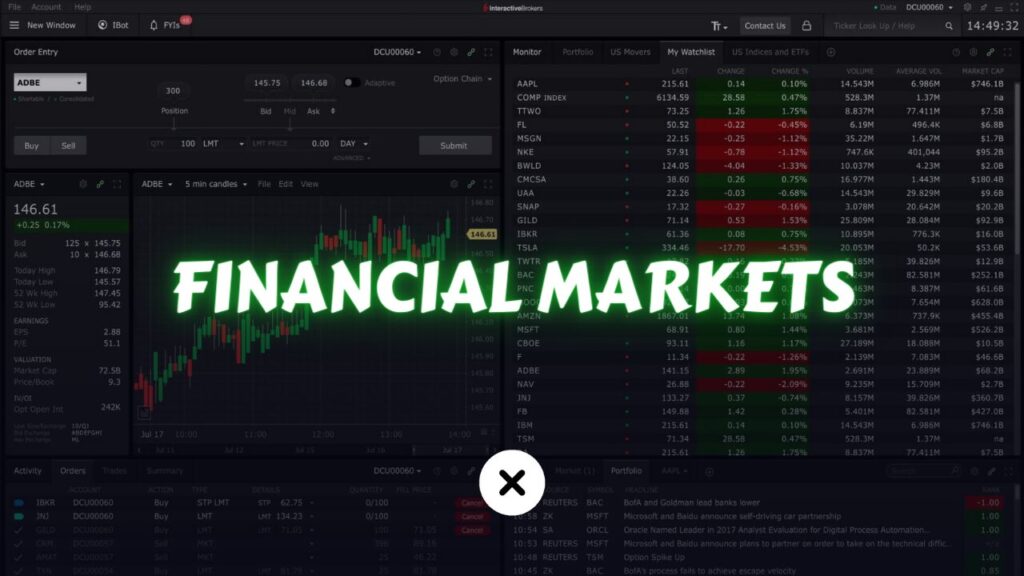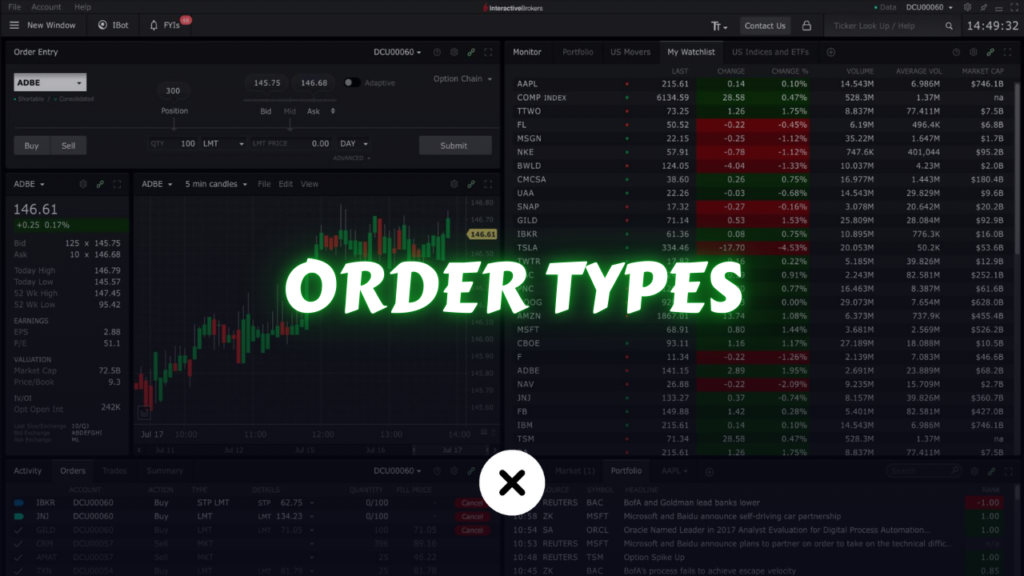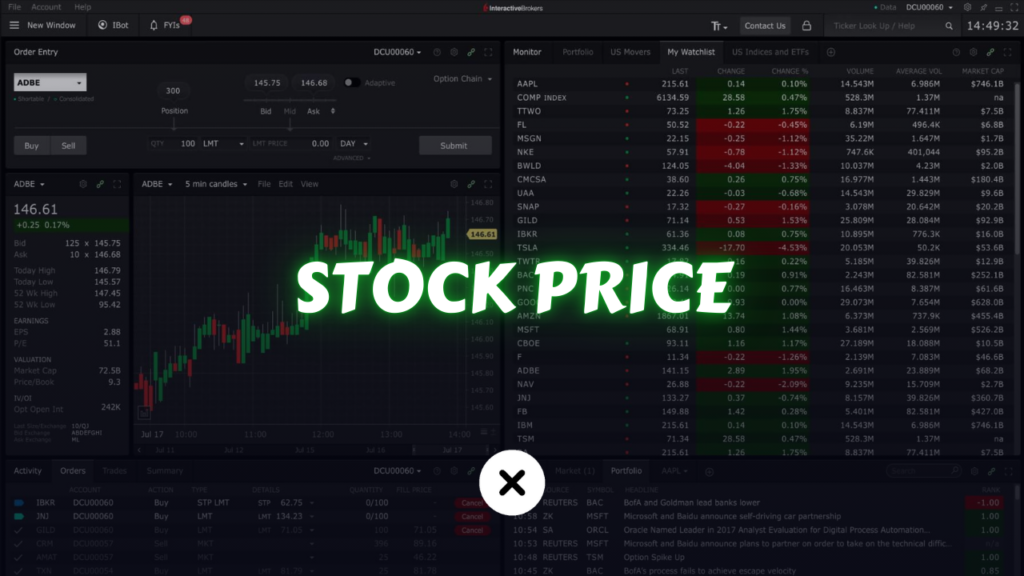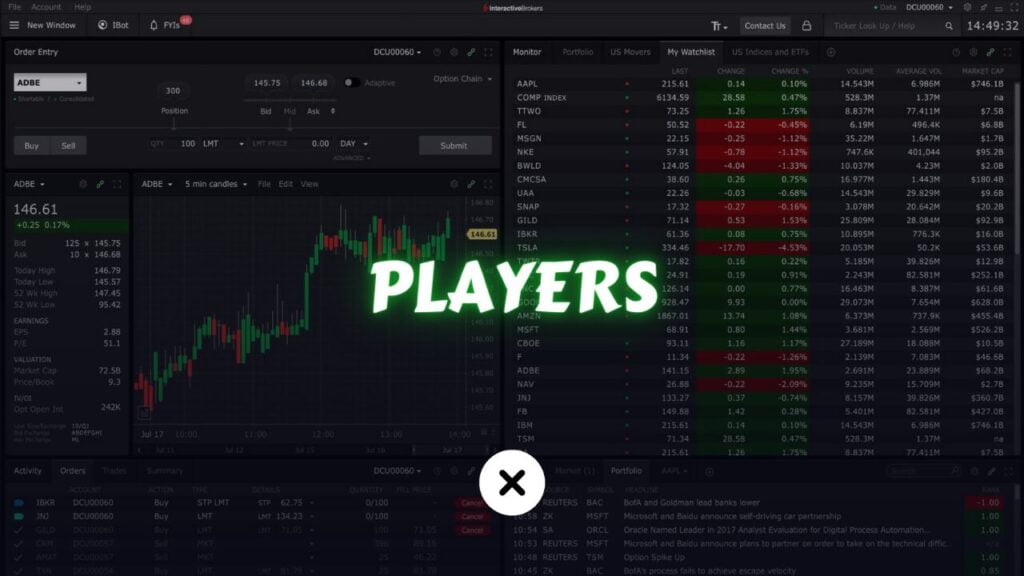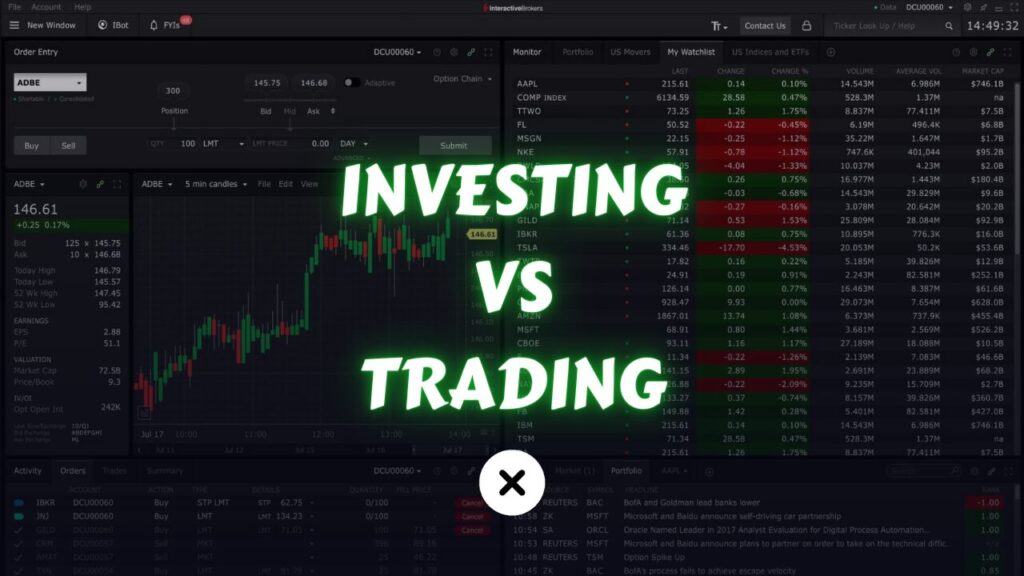Welcome to xlearn’s Stock Trading Basics, your essential resource for understanding financial markets and how to start trading stocks. Whether you’re just starting or looking to deepen your knowledge, this guide will provide you with the foundation to navigate the world of stock trading with confidence.
Our mission is to empower you with the knowledge and tools to research, strategize, and make informed trading decisions. Let’s dive into the world of stocks!
What Are Financial Markets?

A financial market is a platform where the buying and selling of financial instruments—such as stocks, bonds, and commodities—occur. Think of it as a giant auction where prices constantly change due to supply and demand.
Key Characteristics of Financial Markets:
- Assets: Each market deals with specific financial instruments. For example, the stock market is where shares of publicly traded companies are bought and sold.
- Price Fluctuations: Prices change based on factors like company performance, economic indicators, and investor sentiment.
- Objective: Traders aim to profit from these price changes by buying low and selling high.
At its core, trading is about converting cash into assets and back into cash, hopefully at a profit.
What Are Stock Exchanges?

A stock exchange is a specific marketplace where stocks and other financial instruments are traded. Exchanges ensure that transactions occur in a regulated, transparent, and fair environment.
How Stock Exchanges Work:
- Companies list their shares on an exchange through an Initial Public Offering (IPO).
- Investors buy and sell these shares based on market prices.
- Exchanges serve as a central hub that connects buyers and sellers.
Major Stock Exchanges Around the World:
- New York Stock Exchange (NYSE): The largest exchange globally, home to companies like Apple, Coca-Cola, and ExxonMobil.
- NASDAQ: Known for its technology-heavy listings such as Microsoft, Tesla, and Amazon.
- London Stock Exchange (LSE): A key European exchange featuring a mix of global companies.
- Tokyo Stock Exchange (TSE): The primary exchange in Japan, hosting giants like Toyota and Sony.
These exchanges are integral to the stock market, offering liquidity, transparency, and accessibility for traders and investors.
Market vs. Exchange: What’s the Difference?

The terms “market” and “exchange” are sometimes used interchangeably but refer to different concepts.
Market:
- A market is a broader concept encompassing all the buyers and sellers of a specific financial instrument.
- It can be decentralized and does not require a physical location (e.g., the over-the-counter market for certain stocks).
Exchange:
- An exchange is a specific, centralized platform where stocks are bought and sold.
- Exchanges operate under strict regulatory frameworks to ensure fair trading practices.
In simple terms, while a market is the overall network of buyers and sellers, an exchange is the specific place where transactions happen.
Understanding Brokers: Your Access to Stock Trading

A broker acts as the middleman between you and the stock market. Brokers execute your buy and sell orders and may provide additional services like research tools and portfolio management.
Types of Brokers:
- Full-Service Brokers: Offer comprehensive services, including financial advice, but at a higher cost.
- Discount Brokers: Provide basic trading services at lower fees, suitable for experienced traders.
- Online Brokers: Allow you to trade independently using digital platforms.
Why Choose an Online Broker?
Online brokers are the most popular choice for stock traders today. They provide:
- Lower Costs: Minimal fees compared to traditional brokers.
- Ease of Use: User-friendly platforms for placing trades.
- Research Tools: Access to charts, market data, and analysis.
Popular Online Brokers for Stock Trading:
- Interactive Brokers: Offers low fees and advanced trading tools.
- Charles Schwab: Great for beginners, with robust educational resources.
- E*TRADE: Combines ease of use with advanced tools for more experienced traders.
How Stock Trading Works: A Step-by-Step Guide

At its core, stock trading involves buying shares of a company and selling them at a higher price to earn a profit. Here’s how it works:
1. Buying and Selling Stocks:
- Buy: Purchase shares if you believe the stock’s value will increase.
- Sell: Sell your shares when you’ve reached your profit target or if you expect the stock’s value to drop.
- Short Selling: If you anticipate a stock’s value will decrease, you can sell borrowed shares and buy them back at a lower price. (We’ll explore this in more detail in later articles.)
2. Analyzing Stock Prices:
Stock prices are influenced by various factors, including:
- Company Performance: Earnings reports, new product launches, and management changes.
- Economic Conditions: GDP growth, inflation, and interest rates.
- Market Sentiment: Investor emotions like fear and greed can drive price movements.
3. Types of Orders:
- Market Order: Executes your trade at the current market price.
- Limit Order: Allows you to set a specific price at which you want to buy or sell.
- Stop-Loss Order: Automatically sells your shares if the price falls below a certain level, protecting you from large losses.
Why Stock Exchanges Matter

Understanding stock exchanges is crucial for traders. They ensure:
- Liquidity: Easy buying and selling of stocks due to the presence of many buyers and sellers.
- Transparency: Clear visibility into market prices and transaction details.
- Regulation: Protection for traders against fraudulent activities.
Tips for Beginners in Stock Trading

- Start Small: Begin with a modest amount you can afford to lose while learning the ropes.
- Educate Yourself: Learn the basics of technical analysis (charts and trends) and fundamental analysis (company financials).
- Diversify: Avoid putting all your money into one stock or sector.
- Use Stop-Loss Orders: Protect your investments by setting predefined loss limits.
- Stay Disciplined: Develop a trading plan and stick to it, avoiding emotional decisions.
Frequently Asked Questions (FAQs)
Q1: How much money do I need to start trading stocks?
A: You can start with as little as $100, but having $500-$1,000 is recommended to cover fees and manage risks effectively.
Q2: Do I need to follow the news?
A: Yes, staying updated on company earnings, economic reports, and global events is crucial for informed decision-making.
Q3: Should I invest or trade?
A: Investing focuses on long-term growth, while trading seeks short-term profits. Your choice depends on your financial goals and risk tolerance.
Final Thoughts
Stock trading is an exciting journey that offers the potential for financial growth. By understanding financial markets, stock exchanges, and the role of brokers, you’ll lay a solid foundation for success. Remember, continuous learning and self-research are essential to becoming a skilled trader.
Stay tuned for more articles in this series, where we’ll explore advanced topics like technical analysis, trading strategies, and risk management. Together, let’s make stock trading a rewarding and enjoyable experience!
